"A Nod to the Chir of St Peter"
by the Most Revd Dom Alistair Bate OSBA (csr)
The Holy Celtic Church International takes seriously the advice of St Patrick that “if you would be Christians then be as the Romans”. In this we differ from several, basically Protestant, “Celtic” jurisdictions, particularly in the USA. Generally on matters of doctrine we are happy to affirm all that the Holy Roman Church teaches with the one exception of Papal Infallibility, which for us, as for all Old Catholics, is a step too far from the Catholic and Apostolic faith. We do, however, honour the Bishop of Rome as the successor of St Peter and in an ideal church would accord him a primacy of honour. That ideal church is certainly unlikely to become a reality within our lifetime, if ever.
Observing the last few years of this new and extraordinary papacy of Pope Francis we find it more difficult to evaluate than that of other popes, but we thought it might be helpful at this time to clarify where we stand, both for our own benefit and that of our clergy and people.
Firstly, looking back at the previous pontificate we find stability and the teaching of timeless truths, as well as much that had already served its time. We laud Pope Benedict for establishing the Ordinariates for former Anglicans and thereby affirming our Anglo-Catholic liturgical tradition. We were delighted by his “reform of the reform”, a general push towards better and more traditional liturgy, his championing of new vigorous traditional orders and his friendliness towards the Fraternity of St Pius X and other traditionalist groups. On the other hand we deplore his hard-line moral theology, exemplified by his refusal of communion to the divorced and remarried and his labeling of homosexuality as “intrinsically evil”, however, in reiterating the timeless teaching of the church on these issues he was doing no more than remain faithful to the teaching of his predecessors and it is clear that the man himself bore no malice. Most of all, we admire him for his famous Regenburg address in which he bravely spoke the truth with regard to Islam, to the great consternation of Muslims worldwide, echoing the words of the Byzantine Emperor Manuel II Palaiologos, “Show me just what Muhammad brought that was new and there you will find things only evil and inhuman, such as his command to spread by the sword the faith he preached.” Patriotic Europeans everywhere loved him for it. Unlike his predecessor, it was clear that Pope Benedict would not be kissing any Qurans.
Firstly, looking back at the previous pontificate we find stability and the teaching of timeless truths, as well as much that had already served its time. We laud Pope Benedict for establishing the Ordinariates for former Anglicans and thereby affirming our Anglo-Catholic liturgical tradition. We were delighted by his “reform of the reform”, a general push towards better and more traditional liturgy, his championing of new vigorous traditional orders and his friendliness towards the Fraternity of St Pius X and other traditionalist groups. On the other hand we deplore his hard-line moral theology, exemplified by his refusal of communion to the divorced and remarried and his labeling of homosexuality as “intrinsically evil”, however, in reiterating the timeless teaching of the church on these issues he was doing no more than remain faithful to the teaching of his predecessors and it is clear that the man himself bore no malice. Most of all, we admire him for his famous Regenburg address in which he bravely spoke the truth with regard to Islam, to the great consternation of Muslims worldwide, echoing the words of the Byzantine Emperor Manuel II Palaiologos, “Show me just what Muhammad brought that was new and there you will find things only evil and inhuman, such as his command to spread by the sword the faith he preached.” Patriotic Europeans everywhere loved him for it. Unlike his predecessor, it was clear that Pope Benedict would not be kissing any Qurans.
The pontificate of Pope Francis, on the other hand, could not be more different. From the time he first stepped on to the Vatican balcony it was clear that his ultra-modernist and populist style was designed to appeal to the semi-secularised and theologically unsophisticated, who of course these days form a majority of those who call themselves Catholics, at least in Europe. It soon also became clear, however, that he cared nothing for Europe itself and has constantly pushed indigenous European Catholics into accepting and supporting economic migrants from the Islamic world. It is obvious “whose man” he is as he consistently lends his support to the most “liberal” politicians throughout the western world whilst he demonizes nationalists.
He has barely given any support to the Ordinariates but rather has continued his previous practice in South America where he openly courted evangelicals and heretical Anglicans. He has even received in audience a group of women bishopesses from the USA, and in this 500th year since the so-called “Reformation” he has made a big show of “reconciliation” with the Lutherans. St Pio of Pietrelcina once remarked that Luther was "in hell" and I can’t help wonder what that particular holy Franciscan must think of this Pope who has chosen St Francis as his inspiration and patron.
On the positive side, from our perspective, it only seems like common sense to soften the church’s traditional stance on communion for the divorced and remarried and if the rumours be true that Francis is about to gradually open the diocesan priesthood to married men then that might just save the church in the developed world, however, one might well ask what kind of church that would be, most probably one that is just a hair’s breadth away from the Lutherans and mainstream Anglicans and devoid of much, if any, sacramental potency.
Pushing as hard, as fast and as ruthlessly as he can, Pope Francis is still just barely getting away with the loop holes for common sense pastoral theology offered in his enclyclical Amoris Laetitia and his disdain for traditionalists is obvious from his off the cuff remarks, his refusal to answer the Dubia and from his suppression of the traditional Mass whenever and wherever possible - for example, the suppression of the seminary of the Franciscan Friars of the Immaculate, which was one of the fastest growing and most successful traditionalist religious orders in the world, now sadly castrated.
From our “liberal traditionalist” perspective (which is typically Anglo/Liberal Catholic) the fact that RC liturgical traditionalism always goes hand in hand with illogical and inhumane moral theology, is both unnecessary and unfortunate. Indeed there is something very unhealthy about fundamentalism wrapped up in Catholic traditionalism, as a quick search on youtube will easily display. Some conservative Catholic commentators go so far as to speculate that “Anti-Pope” Francis is a freemason in disguise and/or a Luciferian agent of the New World Order - and to be honest I am inclined to think there may be no smoke without fire, wildly exaggerated though these claims may be.
He has barely given any support to the Ordinariates but rather has continued his previous practice in South America where he openly courted evangelicals and heretical Anglicans. He has even received in audience a group of women bishopesses from the USA, and in this 500th year since the so-called “Reformation” he has made a big show of “reconciliation” with the Lutherans. St Pio of Pietrelcina once remarked that Luther was "in hell" and I can’t help wonder what that particular holy Franciscan must think of this Pope who has chosen St Francis as his inspiration and patron.
On the positive side, from our perspective, it only seems like common sense to soften the church’s traditional stance on communion for the divorced and remarried and if the rumours be true that Francis is about to gradually open the diocesan priesthood to married men then that might just save the church in the developed world, however, one might well ask what kind of church that would be, most probably one that is just a hair’s breadth away from the Lutherans and mainstream Anglicans and devoid of much, if any, sacramental potency.
Pushing as hard, as fast and as ruthlessly as he can, Pope Francis is still just barely getting away with the loop holes for common sense pastoral theology offered in his enclyclical Amoris Laetitia and his disdain for traditionalists is obvious from his off the cuff remarks, his refusal to answer the Dubia and from his suppression of the traditional Mass whenever and wherever possible - for example, the suppression of the seminary of the Franciscan Friars of the Immaculate, which was one of the fastest growing and most successful traditionalist religious orders in the world, now sadly castrated.
From our “liberal traditionalist” perspective (which is typically Anglo/Liberal Catholic) the fact that RC liturgical traditionalism always goes hand in hand with illogical and inhumane moral theology, is both unnecessary and unfortunate. Indeed there is something very unhealthy about fundamentalism wrapped up in Catholic traditionalism, as a quick search on youtube will easily display. Some conservative Catholic commentators go so far as to speculate that “Anti-Pope” Francis is a freemason in disguise and/or a Luciferian agent of the New World Order - and to be honest I am inclined to think there may be no smoke without fire, wildly exaggerated though these claims may be.
There are also several prophecies to bear in mind when considering the Papacy in these days, most notably those from Nostradamus and Our Lady of Garabandal. At Garabandal Our Lady told Conchita (in 1963) that there would be no more than three popes before “the end of our times”. Conchita has clarified that John Paul I is not counted as his reign was so short, which leaves Paul VI, John Paul II and Benedict XVI. Clearly the end of Pope Benedict’s reign was the end of an era in the Roman Catholic Church as we know it. There has been a seismic shift in the Vatican and whether the present Pope is actually a Catholic is now certainly debatable.
So how will this effect those of us on the margins of the institutional church, one may ask? "Positively", is the answer, I hope. A more ecumenically open Roman church is always welcome and if traditionalists are going to be driven into the arms of sede-vacantists and independent jurisdictions then we might even pick up one or two converts too, though naturally those who happen to be traditionalists of a more liberal hue.
So how will this effect those of us on the margins of the institutional church, one may ask? "Positively", is the answer, I hope. A more ecumenically open Roman church is always welcome and if traditionalists are going to be driven into the arms of sede-vacantists and independent jurisdictions then we might even pick up one or two converts too, though naturally those who happen to be traditionalists of a more liberal hue.
Certainly we have all the basic necessities of a church, even if we lack the material resources. We have valid orders and sacraments, beautiful traditional liturgies profound spirituality and warm fellowship to offer. Our Lord himself said that he had other sheep who are “not of this flock” and at Garabandal, when Conchita informed Our Lady that Protestants were present, Our Lady is said to have replied that “they are my children also”. So, if Protestants are considered children of Mary, how much more must we be who are truly devoted to her. Therefore, let us hold our heads high above the parapet, ready to welcome those who may be searching for what we have to offer, for as our lines of succession prove, our bishops are also successors of St Peter.
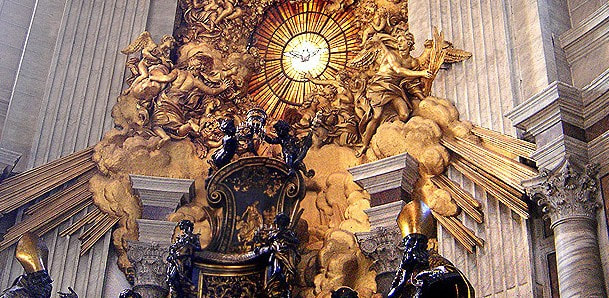
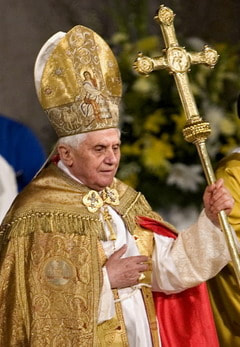
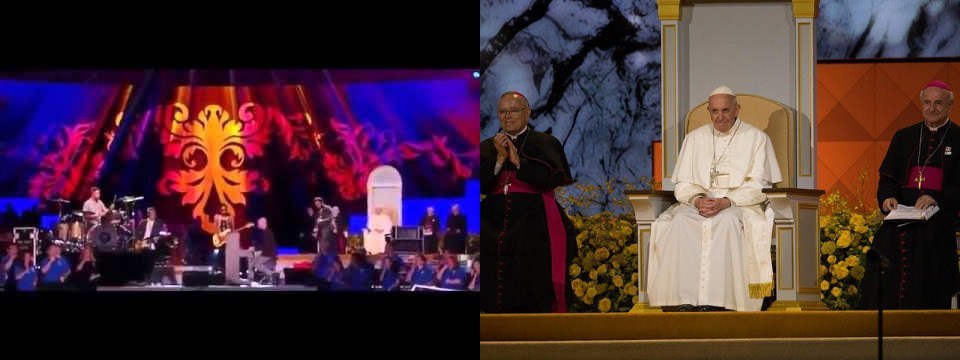

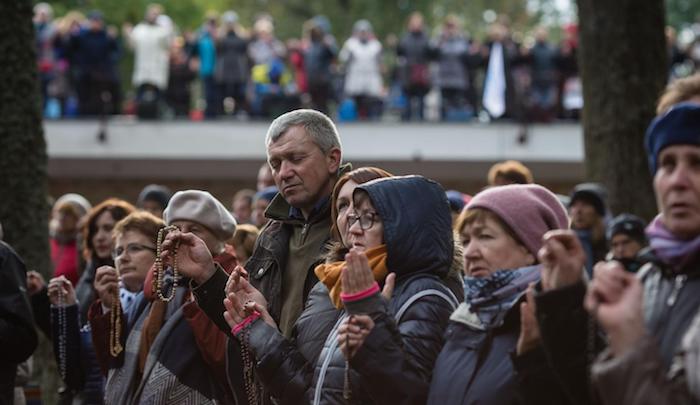

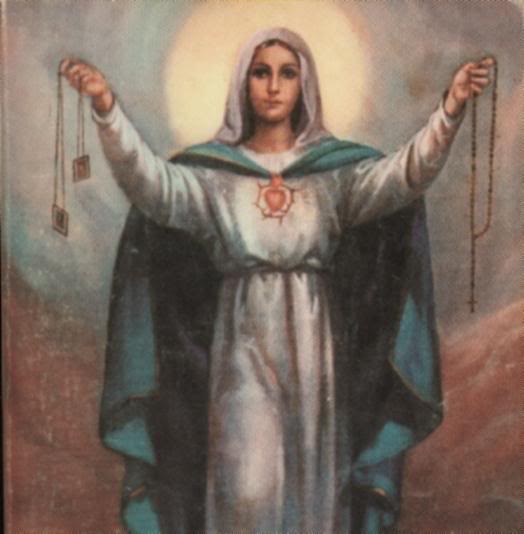

 RSS Feed
RSS Feed
